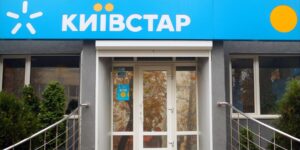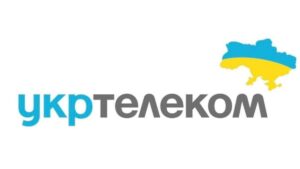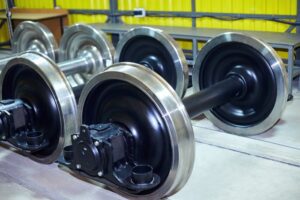
The largest Ukrainian mobile operator Kyivstar in the first quarter of 2023 increased its hryvnia revenue by 6% (in dollars it decreased by 17.2%) compared to the same period in 2022, to UAH 8.346 billion, according to a report by the parent company VEON.
According to it, during the reporting period, Kyivstar increased its EBITDA by 1% in hryvnia (in dollars, the figure decreased by 21.2%) compared to the same period last year – up to UAH 4.921 billion, and its EBITDA margin decreased by 2.9 percentage points (p.p.) – to 59%.
The company clarified that revenues from mobile services increased by 6.7%, to UAH 7.830 billion.
In addition, the operator noted that in the first quarter of 2023, the consumption of minutes per subscriber (MoU) decreased by 11.7%, to 551 from 624 in the same period last year. At the same time, the use of mobile Internet over the same period increased by 23.4% – up to 9.5 gigabytes per subscriber, while the average revenue per user (ARPU) increased by 13.3% – up to UAH 106.
The subscriber base in the first quarter of 2023 amounted to 24.3 million, 6.7% less than a year earlier, at the same time, the number of 4G users increased by 4.2%, or 600,000, to 13.3 million in a year, and now 4G penetration in the subscriber base is 54.6%.
As for the Kyivstar fixed network, its revenues decreased by 4.2%, to UAH 463 million, and the number of users by 7%, to 1.1 million.
At the same time, the company noted a 27.7% increase, to 1 million, in the number of users of Kyivstar TV’s streaming business and the recent launch of the Children’s Profile in it.
According to the report, Kyivstar’s capital expenditures increased by 18.4% over the reporting period, to UAH 780 million.
According to the company, Kyivstar’s capital expenditures were aimed at maintaining the main networks in the country, as well as the sustainability of the business. The Kyivstar team was able to keep almost 90% of the radio network as of the end of March 2023.
During the quarter, 81 settlements were connected to the 4G network, 215 new base stations were added and another 460 were converted to 4G.
In the first quarter of this year, VEON did not record significant impairment losses related to operations in Ukraine and no impairment losses related to operations in Russia.

The EBITDA of Ukrtelecom JSC in January-September 2022 decreased by 39% compared to the same period in 2021, to UAH 975 million, the company’s press service told Interfax-Ukraine.
According to the press release, due to the loss of control over part of the telecom infrastructure and the termination of the provision of services in the temporarily occupied territories, the company’s total income for nine months decreased by almost 17% compared to the same period last year and amounted to almost UAH 4.2 billion.
“The fall in EBITDA was due to the significant impact of the write-off of assets (losses) in the temporarily occupied territories, the formation of a reserve, as well as receivables arising from an increase in the number of overdue payments from customers. In addition, some of the company’s subscribers left the country. Also significant funds were aimed at helping the Armed Forces of Ukraine and humanitarian aid,” the operator commented on the results for January-September.
At the same time, the company continues to pay taxes on land and real estate, including in the temporarily occupied territories.
Ukrtelecom also noted that until February 24, all the company’s indicators showed steady growth, but the full-scale war unleashed by the Russian Federation against Ukraine changed everything.
“Since the beginning of the full-scale war between Ukraine and the Russian aggressor, Ukrtelecom has been working to restore services 24/7, ensuring their availability at the level of 87% of the settlements covered by the operator’s network. Assistance to the Armed Forces of Ukraine and the arrangement of Wi-Fi in school shelters are the main directions of the system the company’s social responsibility program during the war,” the press service of Ukrtelecom emphasizes.
According to the company, one of the strategic directions of Ukrtelecom’s network modernization was, as before, the optimization of the use of technological energy resources. Thus, over the past three years, electricity costs have decreased by 41%: from 155 million kWh in 2018 to 92 million kWh in 2021. At the same time, the company continues to implement a long-term energy efficiency program in wartime, which will contribute to the strength of Ukraine’s energy system, according to a press release.
“In recent months, the terrorist state has massively attacked the energy infrastructure of Ukraine, which causes direct damage to communication systems. The margin of safety of the Ukrtelecom network is currently provided by autonomous power generators, which are equipped with the operator’s most important Internet nodes, as well as sufficient (at least daily norms) fuel supply. The company’s daily investment in the stability of communication services is up to 14 thousand liters of diesel fuel with a critical load on the power grid and emergency shutdowns,” the statement said.
Despite the full-scale war, Ukrtelecom continues to implement projects to connect users to optics – in 2022, about 5 thousand km of fiber optic lines have already been built, and the optical Internet user base has grown by 33% compared to September last year and amounted to more 300 thousand subscribers in the mass and business segments.
About 200 medical and educational institutions were connected to high-speed optical Internet, more than 60 of them in the third quarter. In general, as of the beginning of October, optics from Ukrtelecom are used in more than 1.7 thousand educational and almost 1.3 thousand medical institutions.
In addition, Ukrtelecom completely modernized the telecommunications infrastructure in Dnipro, replacing copper cables with optical ones, and all operator services are now provided exclusively using the NGN (next generation network) multiservice telecom network of the new generation. Subscribers in Dnipro, switched to the FTTx optical architecture, have Internet speeds up to 1 Gbps.
Also, the implementation of a similar large-scale project to transfer subscribers to the modern NGN telecommunications infrastructure in Odessa is nearing completion.
Ukrtelecom emphasizes that it is still efficiently managing the property freed up due to the modernization of the technological infrastructure. Commercial rental income for three quarters of this year exceeded UAH 273 million, while they are almost 15% less than a year ago, which is due, among other things, to the loss of a number of properties in temporarily occupied settlements and destruction as a result of rocket attacks.
The operator notes that during the full-scale war he suffered considerable losses. A preliminary estimate of the cost of destroyed and damaged buildings, lost equipment, telecommunications networks and other assets in the temporarily occupied territories is almost UAH 650 million.
For nine months. In 2022, Ukrtelecom paid UAH 1.12 billion in taxes to the budgets of all levels, allocated about UAH 50 million in financial assistance for the needs of the Armed Forces of Ukraine, and also transferred more than 170 corporate vehicles to the army.
Since the beginning of the full-scale war, Ukrtelecom has acquired and donated almost 3,000 tactical first-aid kits, 4,000 medical tourniquets, 2,000 hemostatic bandages and dressings, hundreds of walkie-talkies, dozens of stretchers, generators and many other necessary things and equipment for the needs of our defenders . In the ranks of the Armed Forces of Ukraine, about 350 employees of the company protect Ukraine, according to a press release.
As reported, Ukrtelecom ordered the production of a significant number of Valkyrie unmanned aerial systems (UAC) and has already handed over the first three of them to the Ukrainian military. According to open data, the cost of one such complex is about $18.1 thousand.

The international vertically integrated pipe and wheel company (TKK) “Interpipe” in January-March of this year reduced EBITDA by 63% compared to the same period last year – to $ 15.139 million, but increased revenue from product sales by 19% – up to $239.185 million
According to the company’s press release for the first quarter, steel production decreased by 16% – to 163 thousand tons, pipes – by 12%, to 97 thousand tons, railway products – by 43%, to 23 thousand tons. At the same time, sales of products decreased by 10%, to 140 thousand tons.
The press release notes that the first two months of 2022, the global market conditions were positive for Interpipe. However, after February 24, when Russia invaded Ukraine and launched its first missile strikes, the company’s management decided to completely suspend production. The main task was to ensure the safety of employees and maintain all production facilities. This led to a decrease in pipe production in the first three months of 2022 by 12%, and railway products by 43%.
Despite the decline in operating performance, Interpipe increased its sales revenue by 19% in the first three months, mainly due to a 47% increase in sales revenue from the pipe division, to $181 million.
At the same time, EBITDA fell by 63%. In addition to the loss of sales volumes and additional logistics and transportation costs due to the intrusion on financial results, an additional negative impact was made by the rise in prices for the main raw materials: scrap metal, electricity and natural gas. For example, in the first quarter of 2022, the price of natural gas in Ukraine on average increased more than six times compared to last year, the press release states.
And about. Andrey Korotkov, General Director of Interpipe, explained that at the end of March the company began to cautiously resume shipments, and from April it began a phased launch of production. In May, Interpipe Steel’s electric steel-smelting complex started operating, and the company began to gradually increase the volume of production and shipment of finished products.
“However, unfortunately, Interpipe cannot yet return to pre-war production volumes, since the war broke the usual supply chains, as the Black Sea seaports of Ukraine are blocked, the country has a large shortage of fuel, transport infrastructure is constantly being destroyed as a result of missile strikes. New chains supply and logistics are in the process of restructuring and formation,” Korotkov said, quoted by the press service.
According to him, since the beginning of the full-scale invasion, Interpipe has been steadily paying salaries to all employees, including those who are idle. At the same time, the company, with the support of the Victor and Elena Pinchuk Foundations, joined the large-scale assistance to the Armed Forces of Ukraine, doctors and civilians, allocating more than $35 million for these purposes during the 126 days of the war.
As reported, Interpipe received $91.316 million in net profit in 2021, while in 2020 this figure was $195.116 million (a decrease of 53.2%). Revenue increased to $1 billion 132.9 million from $865.131 million.
Interpipe is a Ukrainian industrial company, a manufacturer of seamless pipes and railway wheels. The company’s products are supplied to more than 80 countries through a network of sales offices located in the key markets of the CIS, the Middle East, North America and Europe. In 2021, Interpipe sold 602 thousand tons of pipe products and 174 thousand tons of railway products. Railway products are sold under the KLW brand.
Interpipe employs 10,000 people. In 2021, the company transferred almost UAH 3 billion to the budgets of all levels.
There are five industrial assets in the company’s structure: Interpipe Nizhnedneprovsk Pipe Rolling Plant (NTZ), Interpipe Novomoskovsky Pipe Plant (NMTZ), Interpipe Niko-Tube, Dnepropetrovsk Vtormet and the Dneprostal electric steel-smelting complex under the Interpipe Steel brand .

The VEON international telecommunications holding, which is the parent company of the Ukrainian mobile operator Kyivstar, recorded a 10.8% increase in revenue in Ukraine in national currency over the first five months of 2022.
According to a VEON press release published by PRNewswire on June 29, 2022, EBITDA decreased by 0.2% in five months (in local currency).
Kyivstar is the largest Ukrainian telecommunications operator. It provides communication and data transmission services based on a wide range of mobile and fixed technologies, including 4G.
Kyivstar’s shareholder is the international group VEON (formerly VimpelCom Ltd.). The group’s shares are listed on the NASDAQ (New York) stock exchange.

Revenue of Metinvest B.V. (the Netherlands), the parent company of the Metinvest mining and metallurgical group, in July this year increased by 1.6%, or $27 million compared to the previous month, to $1.749 billion from $1.722 billion.
According to the published preliminary unaudited consolidated monthly results of the company’s financial statements on Tuesday, the total EBITDA for July was $963 million, which is $32 million, or 3.4% more than in June ($931 million). At the same time, EBITDA from participation in the joint venture amounted to $173 million (in June – $126 million).
According to the report, the adjusted EBITDA of the group’s metallurgical division over July 2021 amounted to “plus” $420 million (in June – “plus” $401 million), including $51 million from participation in the joint venture ($28 million); EBITDA of the mining division – $610 million ($650 million), including from the joint venture – $121 million ($97 million). The management company spent $10 million ($30 million).
Total revenue in July consisted of the $1.362 billion revenue in the metallurgical division ($1.303 billion in June), and the $690 million revenue in the mining division ($713 million). Intragroup sales were $303 million ($294 million).
The total debt of Metinvest in July decreased by $10 million compared to June, to $2.449 billion from $2.459 billion. At the same time, the cash volume increased by $631 million, to $2.074 billion from $1.443 billion.
Funds used in investment activities amounted to $314 million, and in financial activities – $22 million.
Metinvest received $70 million from the resale of square billets (produced by Dniprovsky Iron and Steel Work) in July in the amount of 94,000 tonnes. In addition, $254 million was received from the resale of 225,000 tonnes of flat-rolled products, 79,000 tonnes of long products – $67 million, and 53,000 tonnes of cast iron – $44 million.
In general, the company in July sold 370,000 tonnes of semi-finished products for $287 million, 809,000 tonnes of finished metal products for $913 million, and 186,000 tonnes of coke for $87 million.
In July, the group sold 1.437 million tonnes of iron ore for $366 million, and 82,000 tonnes of coal concentrate for $12 million.

Revenue of Metinvest B.V. (Netherlands), the parent company of the Metinvest mining and metallurgical group, in June this year grew by 9.8%, or $153 million, compared to the previous month, to $1.722 billion from $1.569 billion.
According to the published preliminary unaudited consolidated monthly results of the company’s financial statements last week, total EBITDA in June was $931 million, which is $179 million, or 23.8%, higher than in May ($752 million). At the same time, EBITDA from participation in the joint venture amounted to $126 million (in May it was $147 million).
According to the report, the adjusted EBITDA of the metallurgical division of the group in June 2021 amounted to $401 million (in May it was $367 million), including $28 million from participation in the joint venture ($46 million); EBITDA of the mining division reached $650 million ($460 million), including $97 million ($101 million) from the joint venture. The management company spent $30 million ($5 million).
Total revenue in June consisted of $1.303 billion of the Metallurgical Division ($1.244 billion in May) and $713 million in the Mining Division ($583 million). Intragroup sales totaled $294 million ($258 million).
The total debt of Metinvest in June decreased by $466 million compared to May, to $2.459 billion from $2.925 billion. At the same time, the volume of funds increased by $204 million, to $1.443 billion from $1.239 billion.
Funds used in investment activities amounted to $37 million, in financial activities – $464 million.
Metinvest received $73 million from the resale of square billets (produced by DMK) in June in the amount of 102,000 tonnes. In addition, $225 million was received from the resale of 215,000 tonnes of flat products, $59 million from the resale of 68,000 tonnes of long products, and $53 million from the resale of 80,000 tonnes of pig iron.
In general, the company in June sold 440,000 tonnes of semi-finished products for $316 million, 814,000 tonnes of finished metal products for $849 million, and 162,000 tonnes of coke for $59 million.
In June, the Group sold 1.731 million tonnes of iron ore for $395 million, and 206,000 tonnes of coal concentrate for $29 million.